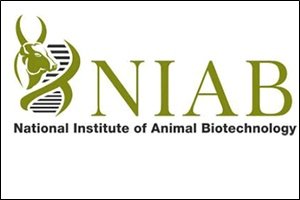Union Minister inaugurates NIAB's new campus in Hyderabad
August 13, 2018 | Monday | News
The institute focuses on research which would lead to to the development of novel vaccines, diagnostics and improved therapeutic molecules for farm animals, focusing broadly on infectious diseases, reproductive biotechnology, animal genetics and other areas with respect to livestock and poultry.
Image Credit: NIAB.org
Union Science and Technology Minister Harsh Vardhan has inaugurated the new campus of National Institute of Animal Biotechnology (NIAB).
NIAB aims to harness novel and emerging biotechnologies and it has taken up research in the cutting areas for improving animal health and productivity.
The institute focuses on research which would lead to to the development of novel vaccines, diagnostics and improved therapeutic molecules for farm animals, focusing broadly on infectious diseases, reproductive biotechnology, animal genetics and other areas with respect to livestock and poultry.
"The animal biotechnology institute is working in taking care of the health of livestock, treating their diseases, researching to improve the output and productivity, working on how to develop new breeds with the help of animal genomics," said Harsh Vardhan.
"I have told them that now the focus of research has to be more and more on people-centric, farmer-centric issues and ensure that we are able to fulfil the dream of the Prime Minister. He wants to double the income of farmers by 2022," he said.
The research of NIAB would contribute towards increasing the income of farmers, he said.
He appreciated NIAB's outreach programme for farmers -- MILAN (Meeting of Indian Livestock Farmers and Agriculturists with NIAB scientists).
Earlier in his address, Harsh Vardhan said the scientific community needs to change the definition of impact factor.
He said it should not be how many times a scientific paper is read by how many people and that it should be about how many millions would be benefited by a scientist's work.
The approach should shift from a routine one to a pro-active and visionary approach with the aims and objectives put in a "dream-like situation", he said.
"There should be a mechanism to put some sort of timeliness to what we want to achieve in how many years or in months or weeks," he said.
He expressed confidence that the country would emerge as the third most promising nation for science in the world by 2030 with the rapid advancements made in the field.
"I am sure that we will be able to realise the dream of being the probably the third most promising nation for science in the whole world by 2030," he said.
The country is sixth in terms of scientific publications all over the world and the country's growth rate for scientific publications is 14 per cent, while the international growth rate is just about four per cent, he said.
The country was caught unaware when the tsunami of 2004 occurred, but INCOIS (Indian National Centre for Ocean Information Services) in Hyderabad is probably the number one in the world in terms of early tsunami warnings, he said.
The country is number four in terms of capability for weather forecasting, cyclones, disasters, he said.
"Can you imagine that in a list of over 1,200 institutions funded by the government, CSIR right now stands at ninth position in the whole world," he said.
The country is well placed with regard to patents and speed, Harsh Vardhan said.
There is good quality synergy now within various departments of the science and technology ministry and also within the scientific community and also with other scientific departments, he said.









